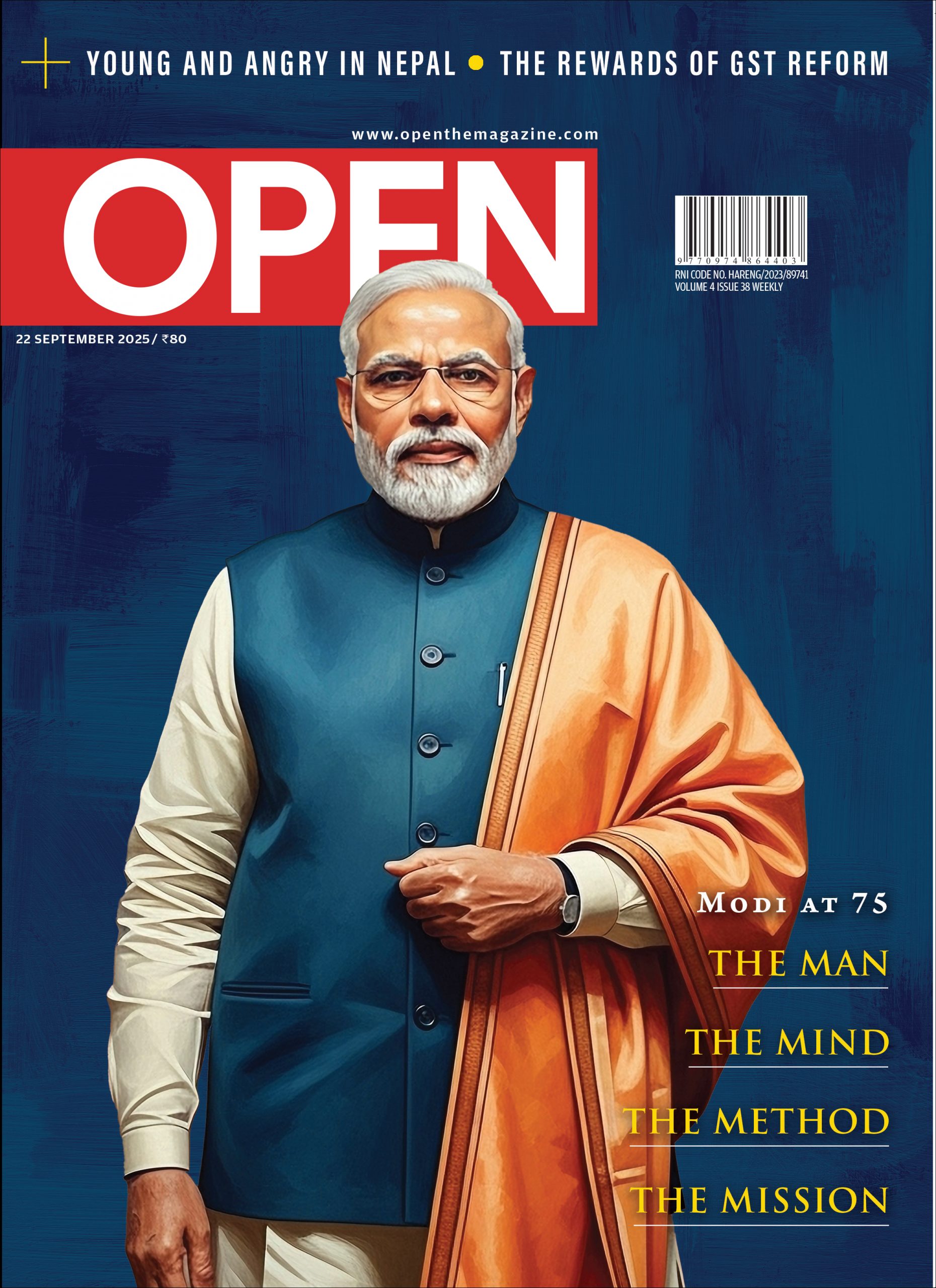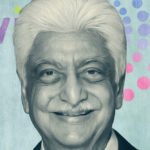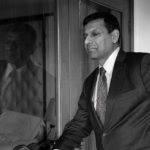Vishwa Adluri: ‘We have become so used to Hindu self-effacement that we now view Hindus as being assertive’
Open conversation with Vishwa Adluri, Indologist and philosopher
 Rahul Pandita
Rahul Pandita
 Rahul Pandita
Rahul Pandita
 |
26 Jul, 2017
|
26 Jul, 2017
/wp-content/uploads/2017/07/OpenConversation.jpg)
THOSE IN INDIA who engage with the country’s past are mostly at two ends of a spectrum. At one end are those who glorify the India of yore as a ‘sone ki chidiya’, a prosperous land of wise people considered superior to the West before foreign marauders came knocking. On the other end are those who see its past as degenerate, and, influenced by Indology, want the modern nation state to sever its umbilical cord from old traditions. One of the ways they try to put this in motion is by asking for ancient Indian texts—like the two great epics—to be read exclusively in terms of the ‘Brahminic ideologies’ that allegedly inspired them. They thus deny these texts philosophical relevance and a message that transcends their time.
Professor Vishwa Adluri, who holds PhDs in Philosophy and Indology and teaches at Hunter College in New York, has through his works challenged Indology and its pre-programmed approach to Indian thought. In his book, The Nay Science, which he co-authored with his student, Dr Joydeep Bagchee (also a graduate of The New School for Social Research, New York, and an expert on German intellectual traditions), Professor Adluri argues for a conception of the humanities as a ‘dialogue between the ancients and moderns and between eastern and western cultures’. Adluri and Bagchee are in India currently, delivering lectures and conducting workshops on the Mahābhārata and how the meaning of this complex philosophical project is lost in Indologists’ insistence on historical interpretation. Professor Adluri speaks about, among other things, the need to study Hinduism as an intellectual architecture. Excerpts from the conversation:
You have said that why the Mahābhārata is relevant today is not a question to ask. You have also said that it is an art object in itself. Then why is it important to study, understand or revisit this ‘art object’?
Actually, what we said is that the question must not be framed in terms of our preconceptions. Let us first clarify our expectations and how we approach the text. The Mahābhārata is a complex literary and philosophical text. We think it is relevant precisely because it challenges our calculative rationality. The Mahābhārata is not there to conform to our expectations of life, of humanity, and of reality. This is the function of art objects: they reveal the world to us in a new way. Keeping ourselves open for the Mahābhārata as an art object and not letting our expectations of the text colour our experience of it are two sides of the same coin.
Your book The Nay Science is overturning a lot of received wisdom in the field of Indology. But how was it able to appropriate what you believe ancient (Hindu) India represented?
Indology emerged in the 19th century during the colonial period. Indigenous Indian institutions were largely defunded; indigenous intellectual networks were broken. There was a concerted effort to replace native systems of education with European models. German states, meanwhile, made sustained investments in Sanskrit. Richard Garbe made an expedition to Varanasi (then Benares) to secure manuscripts for the Prussian state library. He complained that many impoverished Brahmins preferred to drown their manuscripts in the river rather than sell them to the highest bidder, but enough of them did sell him their manuscripts to spark Sanskrit studies in Germany. Sustained attacks on Brahmins’ iniquities facilitated this knowledge transfer.
We must appreciate Hinduism first and foremost as an intellectual architecture. Despite centuries of Islamic rule and, later, colonisation, it retained its vitality well into the last century. Hinduism is thus important for not only India but also the world
How does Protestantism play a role in moulding the later understanding of India?
Protestantism radicalises the sense of newness that is already present in Christianity, as we showed in Jews and Hindus in Indology. It mounts a sustained attack on tradition, as represented by four things: traditional authority, hermeneutics, philosophy and piety. Protestantism is therefore one of the key factors in the rise of modernity. Protestantism is deeply iconoclastic: the old must be critiqued simply because it is old; whatever stands in the way of the message of ‘sola fide’ must be swept away. Indians have also adopted this language today, without asking whom these critiques (secular, Marxist, anti-traditional, radical, modernist) serve. In our brief time in India, several intellectuals made it clear that nothing less than revolutionary violence will serve projects of intellectual modernisation. The model, or the fantasy, if you will, appears to be Mao’s Great Leap Forward.
Some scholars have argued that colonialism crippled the way art and humanities should have provided education. But even after 70 years, why hasn’t India been able to correct this anomaly?
It takes time to decolonise. The Indian state today is the legal and political successor to British India, and the British themselves inherited systems of revenue and administration from the Mughal Empire. It is utopian to think a radical new beginning can be made. But projects are underway without government support, through committed individuals who have never lost their connection with the tradition. We are hopeful a renaissance can and will come about through these efforts. Moreover, the humanities differ from the sciences. Unlike the latter, which retained their objectivity and were open to Indians (and we see the tremendous contributions Indians made in these fields), the humanities are synonymous with a European consciousness. The very concepts of ‘right’ and ‘left’ are remainders of Hegel’s categories of justification for his nation state: Prussia. Because Indian humanities unthinkingly adopted this episteme, a suspicion against non-European traditions is endemic to them. This is true not only in India, but also in the United States, where perhaps the main reason students attend graduate school is to be initiated into the tweed-coat lifestyle of the European intellectual. Very few have either the inclination or the aptitude for a life of scholarship. Academia has become a cult. A PhD is a ticket to intellectual snobbery.
It takes time to decolonise. The Indian state today is the legal and political successor to British India, and the British themselves inherited systems of revenue and administration from the Mughal Empire. It is utopian to think a radical new beginning can be made. But projects are underway
In one of your articles, you point at how Indology reduced Hinduism to ethnic categories. In many of these narratives, Brahminism, for example, has almost been equated with national socialism. Can you throw some light on this?
We must appreciate Hinduism first and foremost as an intellectual architecture. After the triumph of Christianity over pagan philosophy in the West, it is one of the last surviving ancient systems of thought. Despite centuries of Islamic rule and, later, colonisation, it retained its vitality well into the last century. Hinduism is thus important for not only India but also the world. But if the project is modernisation, which is basically synonymous with the elimination of ancient (read pre- Christian) traditions, then Hinduism also constitutes the greatest obstacle. We can therefore understand why some might seek to link it with National Socialism. However tenuous the connection, it justifies intellectual intervention— once again in the name of an ‘enlightened’ modernity. Whatever the past injustices of Brahminism, we need to hold ourselves as academics to a higher standard. Every insider knows stories of financial corruption, sexual harassment, predatory behaviour, abuse of the professor-student relationship, and trading tenure positions for sexual favours in academia. When caricatures of ‘Brahminism’ are used as a cover for real injustices and abuses in the system, there is a problem.
But an antidote to such narratives cannot be simple-minded claims such as ‘Taj Mahal was a Hindu temple’, can it?
No, most certainly not. Whether from the right or the left, these kinds of revisionist narratives are problematic. Our argument has been for a more objective and more self-critical history rather than a new history.
How should Hinduism be studied?
We are philosophers by inclination and by training. We see Hinduism, along with ancient Greek thought, as one of the most profound philosophical systems in human history. All our work goes to understanding and explicating the immense genius and brilliance of these philosophers. Either you see what they were doing or you do not. Either you appreciate this genius or you do not: it has nothing to do with belief. Cultural anthropology or ethnography has never interested us. Beside their questionable historical antecedents and political applications, we think they are a waste of time. As Platonists, we seek to fulfill the Delphic commandment (‘know thyself!’) first.
VS Naipaul called India a ‘wounded civilisation’. Do you think India is one? If yes, what will it take to heal itself?
Almost every civilisation that suffered 19th-century European colonisation is in some way wounded. We see the same pattern repeat in many of these countries. There are no easy answers to this question, but throwing off the intellectual yoke is perhaps second only to the fact of political freedom. For example, even today Mahābhārata studies preserve the legacy of the racist anti- semite Christian Lassen. Scholars have set aside the text as it exists for a specious narrative of ‘Brahminisation’, which allegedly was India’s downfall. Our forthcoming book Philology and Criticism shows how all the evidence for an earlier Kṣhatriya epic was manufactured precisely to sustain this narrative and thus projects of intervention. Without addressing this toxic theory, which was transmitted from Lassen to Gobineau and eventually to Chamberlain and Hitler, we cannot make progress. Indologists have not contributed to this project, indeed, they have hindered attempts at a critical history.
In the last few years, India has experienced a wave of Hindu identity assertion. What are the ways in which it could be channelised in productive ways?
Is it really a wave of assertion of Hindu identity? Or is it the case that after centuries of suppression Hindus are merely finding a more ‘normal’ relationship [with] themselves? Perhaps we have become so used to their self-effacement that we view this as assertive. It recalls the situation when a servant talks back. Actually, this should be perfectly normal: the servant is a thinking, feeling being, with legitimate interests of his or her own. But the master interprets it as an outrage, an insurrection. Aatish Taseer had a good article about this in the New York Times a while back. We do not make political predictions and we have no political solutions. Whatever the process is, it must play itself out. As intellectuals, our job is only to understand. Perhaps this assertion is a reaction to the circumstance that most Indians still live under political arrangements that are deeply estranged from them. Once the political process reflects their democratic and material aspirations, perhaps these debates, which in a way resemble the culture wars in the United States, will lose their relevance. But as members of a double minority, we remain keenly attuned to the issue of safeguards for the minority.
What are the breaks and continuities of 19th-century Indology and the discipline as it is practiced today?
There is a surprising continuity, and this is what continues to baffle us. How has the discipline not undertaken a self-critique? How has it not produced a history of its own origins? How has it not asked the questions of what it does and whom its knowledge serves? The answer may lie in the fact that the existing system and [its] dogmas serve its practitioners. There was no need for critical self-reflection. As long as the narrative of oversight over the natives could be maintained, Indologists were assured of positions of authority and funding. As long as the narrative of a reactionary Brahminism could be maintained, there was a justification for extracting and transferring the Brahmins’ knowledge to the Indologists. A contemporary German Indologist wrote, ‘‘Western’ Indology with its specifically historically oriented, critical approach, had to make use of the Indian pāṇḍitya in order to get, as much as possible, first hand information, but it could not accept its theological dimension without compromising its aims as a historical subject.’ From a Marxist perspective, this statement is completely unacceptable. Translate it into a statement about products of labour rather than intellect (‘had to make use of the Indian sharecropper’ or ‘had to make use of the Bangladeshi seamstress’ ‘in order to get, as much as possible, first hand products’) and no thinking person today would subscribe to it. The surprise is that a statement like this does not cause outrage in a university system that believes in inalienable human rights as the highest good.
In what ways are India notions of time and history different from how they are represented in Indology?
It is not so much that Indology falsely represents Indian notions of time as that it assumes the truth of Christian temporal and eschatological frameworks. These assumptions have become normalised in academia so that scholars do not see a need to bracket their assumptions before approaching ancient texts. What is but one worldview among others, one experience of time among others, now appears, through the humanities’ scientising discourse, as a universal, non-relativisable concept. We raised a challenge to the humanities in the review of World Philology [edited by Sheldon Pollock]: before we speak of ‘world philology’ or ‘humanities’ in a culturally non-specific sense, let us first clarify our concept of history. Let us provide a history of ‘history’. Once we do so, we shall see that Western academia is not equipped to handle the entrance of other cultures into the humanities canon. The only way they can do so is if they first pass through the sterilisation chambers of history of religions, comparative religions, cultural anthropology, etcetera. A new discourse and a new way to structure the humanities are required.

/wp-content/uploads/2025/09/Cover-Modi-scaled.jpg)













More Columns
Surya and Co. keep Pakistan at arm’s length in Dubai Rajeev Deshpande
Tanuja Pandey, poster girl of Nepal’s Gen Z protests, seeks justice for fallen comrades Ullekh NP
Living with the silence of Auschwitz Sabin Iqbal